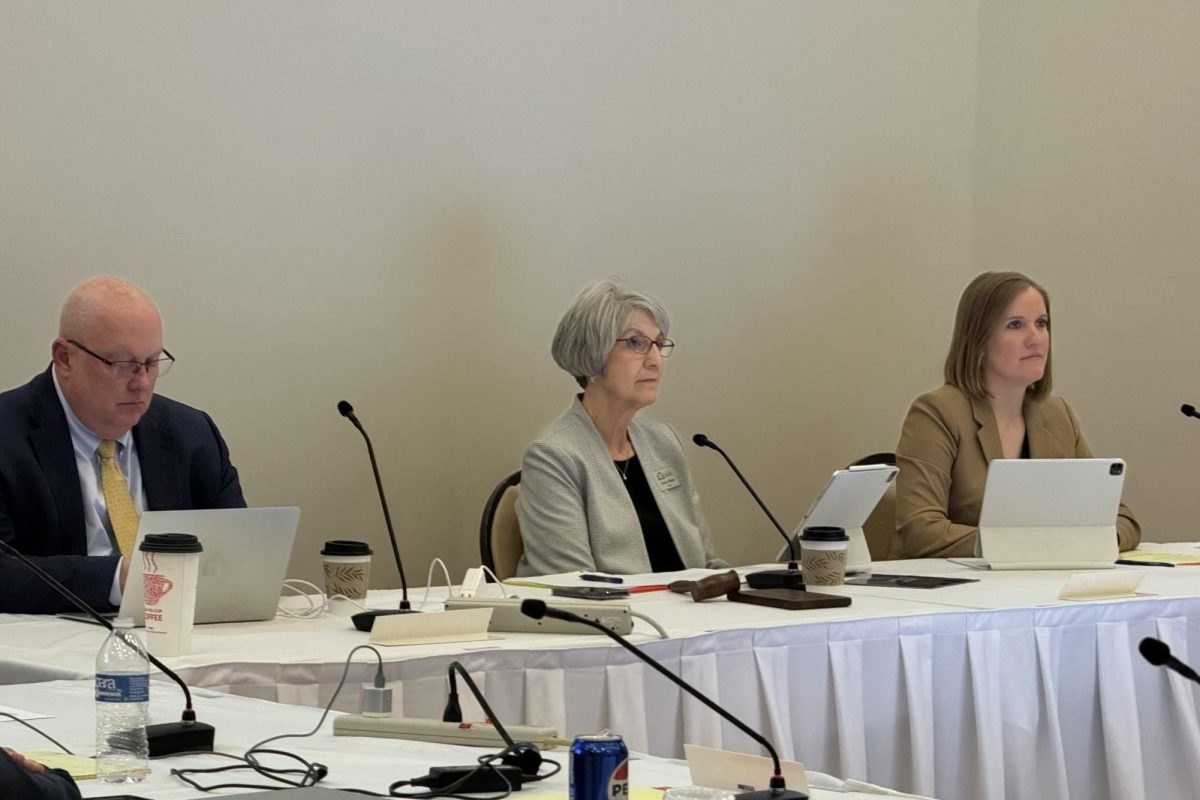Prof signs book about station’s sale
November 28, 2001
A curly-haired woman wearing a red jacket, already carrying eight books, walks up to the table in the leisure section of the University Book Store and picks up another.
Instead of adding it to the pile in the crook of her right arm, she hands it to a man wearing a navy jacket, sitting behind a stack of more copies.
He smiles. “How should I make it out?” he asks.
The woman thinks for a minute. “To Mary, please,” she answers.
The man in the navy jacket opens the paperback book and scrawls in black ink, “To Mary, Neil Harl.”
He then picks up a business card and tucks it into the unbroken binding.
“Here’s my card,” he says. “Let me know what you think as soon as you’ve read it.”
The two carry on a short conversation, and Mary walks off carrying her freshly-signed copy of “Arrogance and Power: The Saga of WOI-TV.”
Author Neil E. Harl sat in the University Book Store for an hour Tuesday to sign copies of his new book, which details the controversy surrounding the sale of the Iowa State-owned television station WOI-TV in 1994.
Harl, distinguished professor of agricultural economics, said about 15 people showed up for the second of four scheduled book signings.
“Of the people who came, many are good friends and longtime friends,” he said. “I like talking about the book.”
Harl said few people have finished the entire book, which appeared in local bookstores Friday, but people “seem very excited” about reading it.
“It’s frank, it’s candid and it’s well documented,” Harl said of his work. “Everything in it is factual.”
The book details the history of the television station, which began with the vision of Iowa State College President Charles Friley in 1941.
Most of the book details the early 1990’s push for the sale of the station by Marvin Pomerantz, former president of the Board of Regents, and then former Gov. Terry Branstad and the fight to keep it at Iowa State.
Harl called the sale “the biggest threat to the university in modern time.”
“[The sale] was opposed by faculty, students, alumni and by virtually everybody in Iowa except Pomerantz and Branstad,” Harl said. “They were powerful enough that they pulled it off.”
Harl, who led the effort to keep the station university-owned, said there are several lessons to learn from the tale of WOI-TV.
“We wrote the book to explain how foolish it was to sell something incredibly valuable for a bargin-basement price,” he said.
Joyce O’Donnell, buyer and supervisor for University Book Store, said several students showed up to get a signed copy of the book after they heard an announcement on the radio.
“I was one of the kids from Iowa who grew up with WOI-TV,” she said. “To me, it was like they sold off part of my childhood.”
















